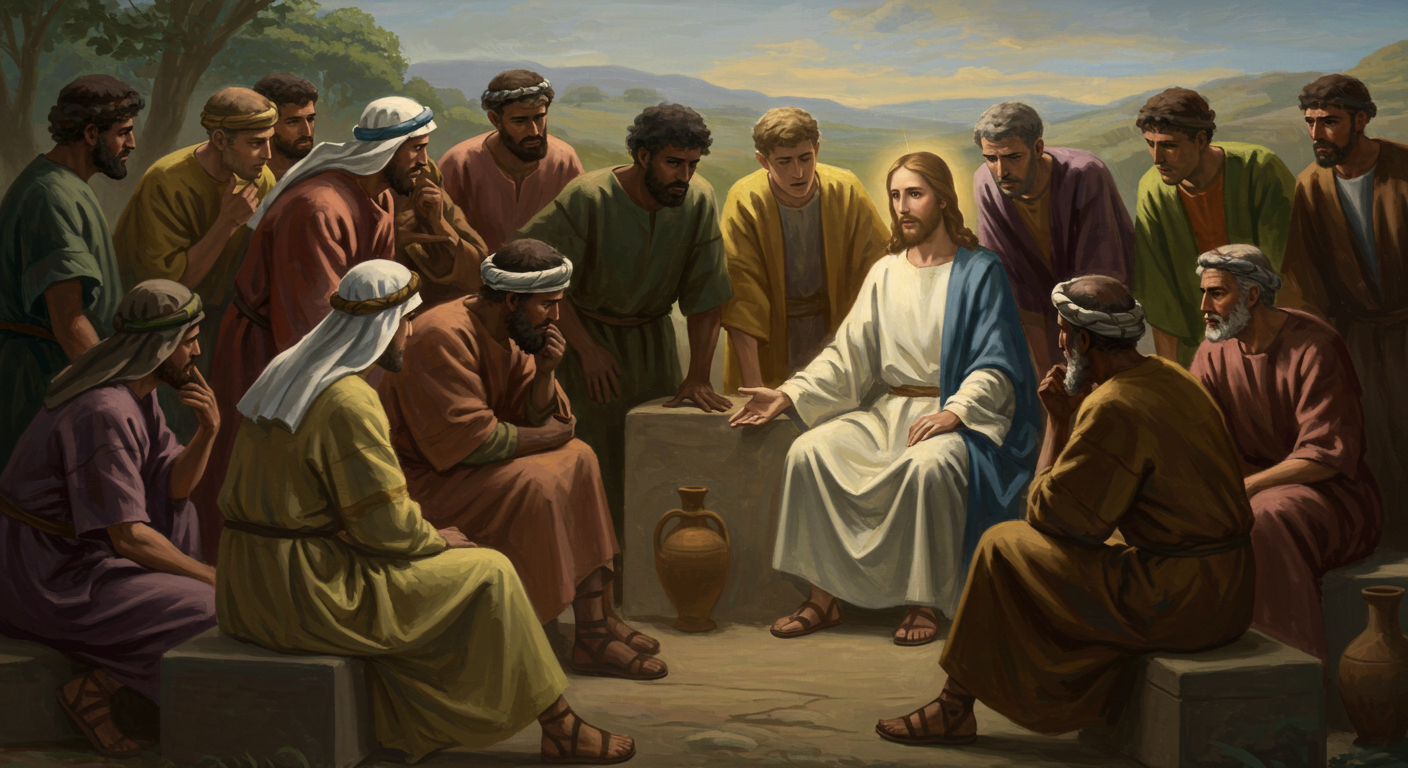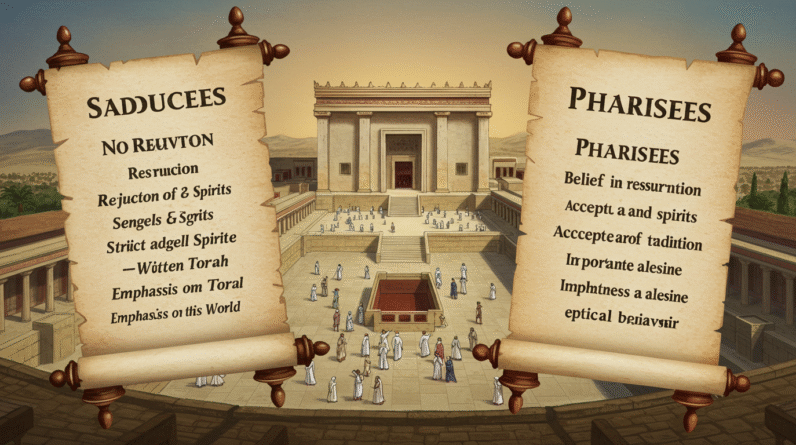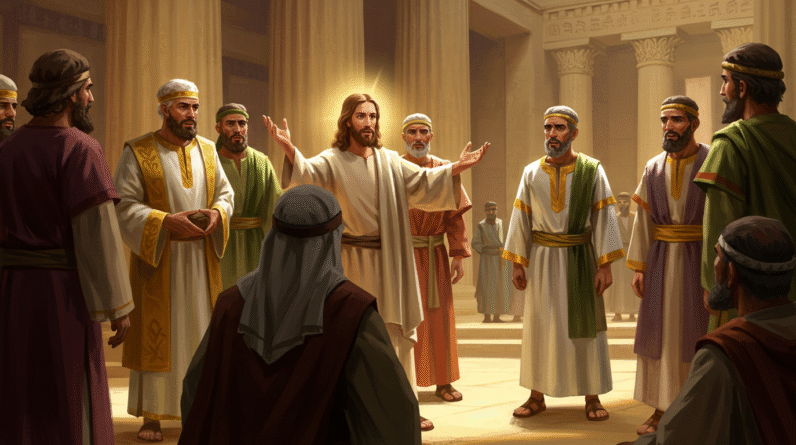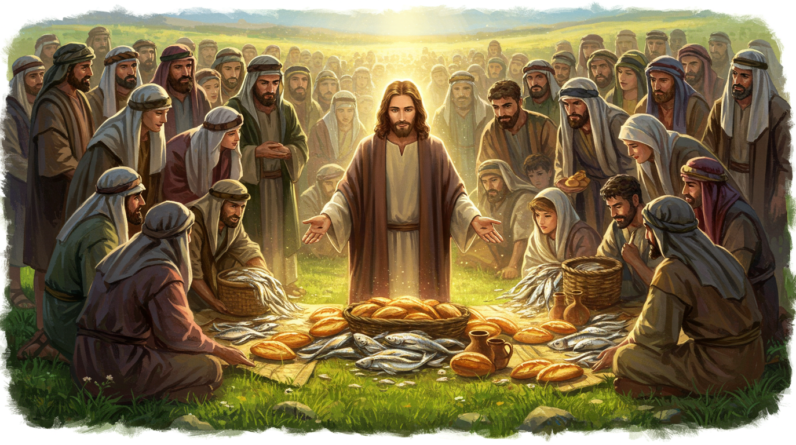Explore the profound story of the 70 Disciples in Luke 10:1-20. Discover how ordinary lives intertwine with divine purpose, challenging perceptions of faith.
The 70 Disciples – Luke 10:1-20
Welcome, dear reader, to a journey through time and scripture that seeks to illuminate the intriguing and often overlooked story of the 70 Disciples. Nestled within Luke 10:1-20, this passage opens a window into a moment of divine collaboration and mission, showing how ordinary people played extraordinary roles in the unfolding narrative of the Gospels. Whether you’re new to this story or revisiting it with fresh eyes, we invite you to consider their faith, efforts, and the timeless lessons they impart.

Introduction
Imagine the scene: Jesus, aware of His monumental task to spread the Gospel, turns not to the established religious leaders of the time, but to His closest followers—ordinary fishermen, tax collectors, and zealots. Out of this group, He commissions seventy disciples (some translations may render this number as seventy-two) to go ahead of Him and prepare the hearts of the people for His teachings. In a momentous act, documented in Luke 10:1 and the surrounding verses, this unlikely group becomes part of a divine mission, showcasing the power of faith and obedience.
The story of the 70 Disciples represents more than just an ancient anecdote. It’s a potent reminder of how each of us, regardless of our background or status, can be part of a greater purpose. Let’s delve deeper into this narrative to uncover the characters, the teachings, and the enduring relevance of their mission.
Their Story in the Bible
The Great Commission
The commissioning of the 70 Disciples is one of the most profound moments captured in the Gospel of Luke 10:1-24. Here, Jesus selects seventy of His followers and sends them out two by two into every city and place He intended to visit. This wasn’t just a practical decision; it was a strategic and spiritual maneuver aimed at cultivating fertile ground for Jesus’ message. The choice of the number seventy is significant, often seen as symbolic of all nations, drawing a parallel to the seventy nations mentioned in Genesis 10.
Instructions and Encouragement
Before their departure, Jesus provided these disciples with specific instructions and guidelines on how to conduct their mission. This can be found in Luke 10:2-12. The disciples were to travel light, carrying no purse, bag, or sandals, a gesture that underscored reliance on God’s provision. They were to impart peace to households, heal the sick, and announce the imminent approach of the Kingdom of God. Jesus warned them of the challenges they would face, likening them to lambs among wolves, yet He fortified them with the promise of His power and presence.
The Joyful Return
Upon completion of their mission, the disciples returned with joy, as recorded in Luke 10:17-20. They marveled at how even demons submitted to them in Jesus’ name. Jesus, in recognition of their accomplishments and the power bestowed upon them, spoke words of assurance and perspective. He emphasized that their true victory lay not in their dominion over spirits, but in the eternal assurance that their names were written in heaven. This chapter concludes with an affirmation of divine joy, security, and calling.
Lessons from Their Life
Embracing the Call
The first lesson from the 70 Disciples is the importance of answering the call to service. Their willingness to go, despite potential fears or uncertainties, is a testament to the power of faith in action. We learn the value of stepping out of our comfort zones to pursue a higher purpose, trusting in our spiritual callings over personal safety.
Reliance on Divine Provision
The directive to carry no purse or bag stresses a reliance on God’s provision. In a society where self-sufficiency is often lauded, this narrative challenges us to reconsider what it means to trust in divine resources. It reminds us that we are not meant to walk our paths alone but to lean into the provided manna for each day of our journey.
The Right Perspective of Success
The disciples’ elation over their tangible victories was gently reprised by Jesus’ reminder that spiritual fulfillment and security are found in knowing one’s place in God’s kingdom. In a world that often equates success with power and recognition, this teaching prompts a reevaluation of what true success looks like—a heart at peace with God, rather than temporal achievements.
Connection to Today’s World
These teachings resonate deeply in today’s world, where acts of faith and service often seem overshadowed by noise and chaos. The willingness of the 70 to embrace their mission speaks volumes in a contemporary context where courage and conviction are often necessary to stand for justice, compassion, and truth.
In our current global landscape, many situations mirror that of the 70 Disciples—going out into a world that doesn’t always understand or welcome truth, yet pressing forward with a message of hope and love. The call to hospitality, kindness, and the sharing of divine peace is as relevant today as it was millennia ago. Their story invites us to reflect: How do we respond to the needs around us? Are we willing to carry the message of love and reconciliation in our modern-day mission fields?

Key Bible Verse
The key verse capturing the spirit of this story is found in Luke 10:3:
“Go! I am sending you out like lambs among wolves.”
This verse encapsulates the vulnerability and bravery combined in the mission of the 70 Disciples. It underscores the spiritual reality of our callings—often challenging, yet undergirded by divine empowerment and purpose.
Thought-Provoking Question
Consider this: As you navigate through life, are you prepared to embrace divine missions that may seem daunting at first glance? Reflect on whether you are open to pursuing paths that require trust in God’s provision and courage in your convictions, much like the 70 Disciples.
Historical/Cultural Context
Historically, the commissioning of the 70 Disciples reflects Jewish customs of sending groups to prepare the way for a leader. This context is crucial for understanding the strategic nature of their mission. It demonstrates how Jesus’ ministry never detached from cultural practices but rather used them to communicate divine truths. Moreover, this methodology can be seen as a precursor to the structure and spread of early Christian communities, which grew through relational and communal foundations.
Comparison with Other Characters
The mission and experience of the 70 Disciples can be compared to the ministry of the Apostle Paul, whose journeys, found in Acts, also reflect reliance on God’s provision and courage amidst challenges. Though Paul often went alone or with just a few companions, his approach to taking the Gospel into new territories echoes the 70’s foundational mission, underscoring the ongoing call for evangelism and service.
Prayer
Heavenly Father, thank You for the example of the 70 Disciples, who teach us courage, reliance on Your provision, and true measures of success. Help us, like them, to go forth boldly in the missions You have for us, trusting in Your power and love. May we see Your Kingdom advance through simple acts of obedience and faith? Amen.







